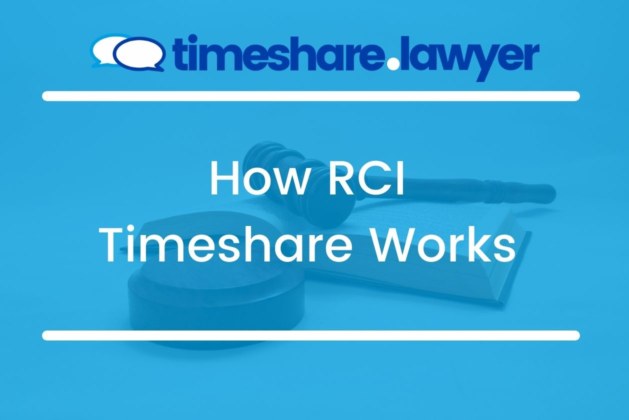RCI is not a timeshare company. It is a timeshare exchange broker, which means that it allows members to exchange their usual timeshare week and resort for a holiday in another resort, perhaps in a completely different destination to that in which they purchased. A timeshare resort may be affiliated with RCI, giving you the option to add RCI membership to your timeshare membership. This will entitle you to exchange your timeshare with other RCI timeshare members at different resorts and destinations worldwide. RCI is the company that oversees and fulfils the exchange, though much of the work will be done by you as you book your exchange holiday within the RCI official booking system.
The other option for members who are under a points-based system is to book their reservation through RCI with another RCI-affiliated resort and pay a booking fee to RCI. Sounds good in theory, but in practice there are usually hidden charges lurking beneath the surface, meaning that there could be £100s more to pay in order to use this service. Therefore, it pays to be wary before being convinced to sign up to an exchange programme. As you will already be paying annual fees for your timeshare, as well as perhaps paying back a loan taken out to pay for the initial lump sum payment on the timeshare, this added cost could be unaffordable. Remember that salespeople are very adept at making it sound like the best deal in the world, but are driven by their own commission and are therefore paid to make the product sound as good as possible. As with any timeshare or holiday product, you need time to go over the figures and think carefully before making a purchase.
Though RCI is not a timeshare developer itself, its sister company, Wyndham Worldwide (and its subsidiary, Wyndham Vacation Club) is. Most of the 6,300+ affiliated timeshare resorts worldwide are Wyndham properties. However, there are many other timeshare companies that offer additional RCI membership to their timeshare members. Other than RCI, the main timeshare exchange company operating is Interval International (II), with smaller exchange companies also operating. You will usually be permitted to pick your own choice of exchange company to complement your timeshare agreement as it is seen as a separate product from the timeshare itself, though your timeshare resort is likely to strongly recommend their own, affiliated programme. As with most products that you buy, it tends to be the case that the more you pay the better the product you get, so bear this in mind before choosing a smaller exchange company.
Buyers of RCI can choose from two types of membership: RCI Points or RCI Weeks. There are different features for each of the two.
RCI Points
Points members have access to both timeshares from other Points owners and banked weeks from other Weeks owners, from any RCI-affiliated resort in the world (usually). The more points you have in your account, the higher the quality of the timeshare unit you can exchange for. You can buy more points direct from RCI, meaning they work as a currency within the system.
RCI Weeks
An RCI Weeks membership is much less flexible than the Points system. You must ‘bank’ a timeshare week by requesting it from the developer. You then give that week to RCI for you to then request a week from the ‘Weeks Owners Pool’. Your available choice of alternative resorts within that pool is limited to ones that are likely less desirable, and does not include timeshares from Points owners. This option, therefore, is less preferable than the RCI Points system.
RCI Colour Coding
Weeks in a year are divided into different segments by exchange companies, usually signified by a colour. These vary for different exchange companies, with Interval International (II) and RCI having their own separate coding system. Each segment represents different levels of trading power and monetary value based on the season’s popularity
– Blue Week
In RCI’s exchange programme, low demand timeshare weeks (generally low season) are designated as ‘blue’ weeks
– Red Week
Both RCI and Interval International designate high season, high desirability timeshare weeks as ‘red’. Those with a ‘red week’ ownership are usually allowed to exchange any week throughout the year as these are usually the most expensive to buy
– White Week
RCI’s exchange programme designates any timeshare weeks falling at a time of year with ‘intermediate’ demand (between high and low season) as white.
What Are The Drawbacks of RCI Timeshare?
Whilst a timeshare exchange programme can offer an excellent way of adding some freedom and variety to your timeshare ownership, many find themselves frustrated by the booking system. There are widespread complaints, as well as some legal cases, over a common problem of unavailability.
Even when logging into the system to book a timeshare exchange, many disappointed members find that there are no available exchanges within their trading power bracket. This means that they would have to pay more to access any timeshare exchange at all, or settle for an inferior unit, week, resort, or destination to the one which they had purchased. Another complaint is that it is only the same resorts or destinations that are available every year, most often in the Canary Islands. Whilst the Canary Islands are a very pleasant place to take a holiday, the idea of a timeshare exchange programme is that it entitles the member to swap their timeshare week for ‘anywhere in the world’. This is precisely how it is sold.
Nonetheless, somewhere in the smallprint, you will find that everything is ‘subject to availability’ which means that if no one has deposited their timeshare week into the exchange bank, then there will be no exchanges available. The best timeshare exchanges are usually booked a long time in advance, though some members report trying to book up to two years in advance or as soon as the exchanges are released, only to still be out of luck.
People often imagine, when they are sold a product that claims to allow them to holiday ‘anywhere in the world’ that they will be able to swap their timeshare holiday for some glamorous destination, such as Hawaii or somewhere in the Caribbean perhaps.
Unfortunately for them, however, this is rarely the case. Those with such a desirable timeshare resort are understandably unlikely to want to swap for a week in Tenerife. Though the sales pitch may lead you to believe that this kind of desirable swap is a sure thing, this is usually pretty misleading and you will find yourself somewhat limited.
Those with the best chance of benefiting from an RCI exchange programme are those who pay more for their membership, as you might expect. A red week RCI exchange holder will be able to exchange for a week of their choice and will have access to the more glamorous resorts, although it is still fair to say that they are also subject to availability.
Controversy
RCI has come under fire in the past, mainly due to the lack of availability issue described above. However, some complaints have arisen in which members found that resorts were allegedly prioritising bookings to non-members in order to drive up the sales of new timeshare units at the resort. RCI has occasionally been found to be complicit in this, particularly at Wyndham resorts where the affiliation is direct. There have also been complaints in the past of priority being allegedly given to RCI or resort staff members of weeks banked within the system.
Quitting RCI
Whilst there is a significant problem with timeshare exits, a timeshare exchange programme is less difficult to get out of. You will probably need to renew your membership annually in order to keep it up. So there is certainly less to lose from trying an RCI exchange membership for a year or two if you want to spice up your timeshare ownership with some variety of destination. You may find that the system works perfectly well for your needs and thus be happy to continue, and if not you will be able to leave within a fairly reasonable amount of time. Though it is an expensive choice to purchase an RCI membership in addition to your timeshare, for which you will have paid a significant lump sum in addition to your annual maintenance fees on your home resort, if you can afford this added extra then it may be worth a go.
RCI is the biggest timeshare exchange company in the world, and has many happy members. It is not without its problems though, and has been the subject of a number of lawsuits in its time. As with any timeshare membership, it’s important to tread carefully and know your rights. There are limitations and hurdles to be negotiated throughout your membership, so being aware of these and how they will affect you is key to making the right choice.




